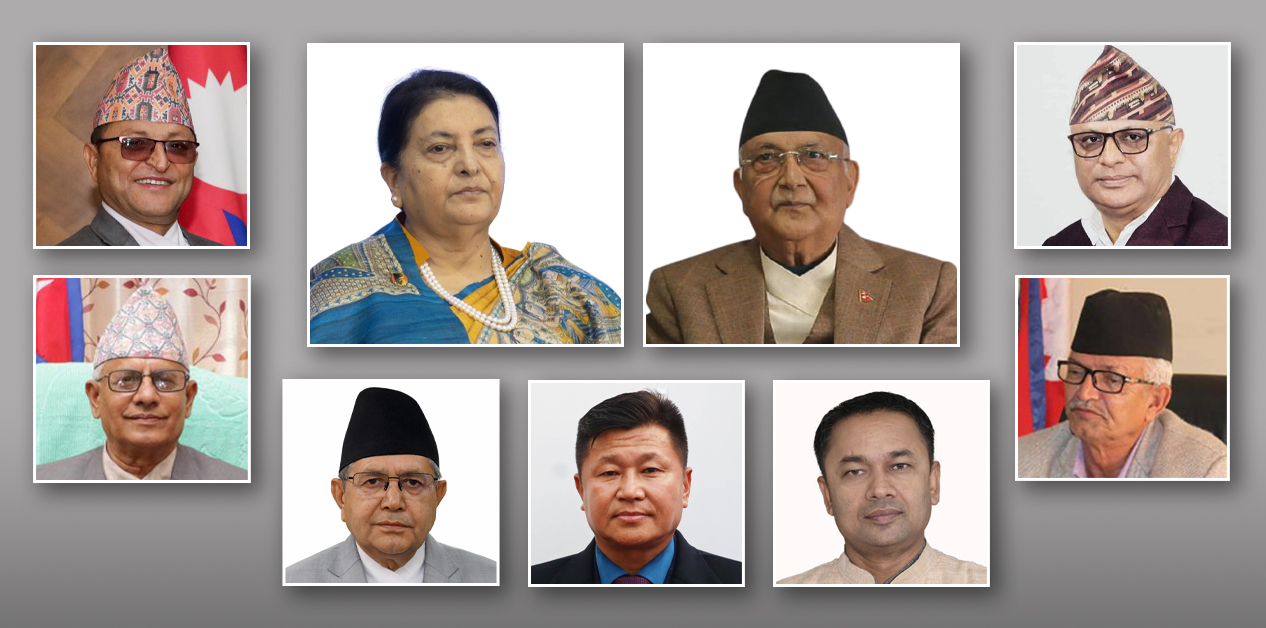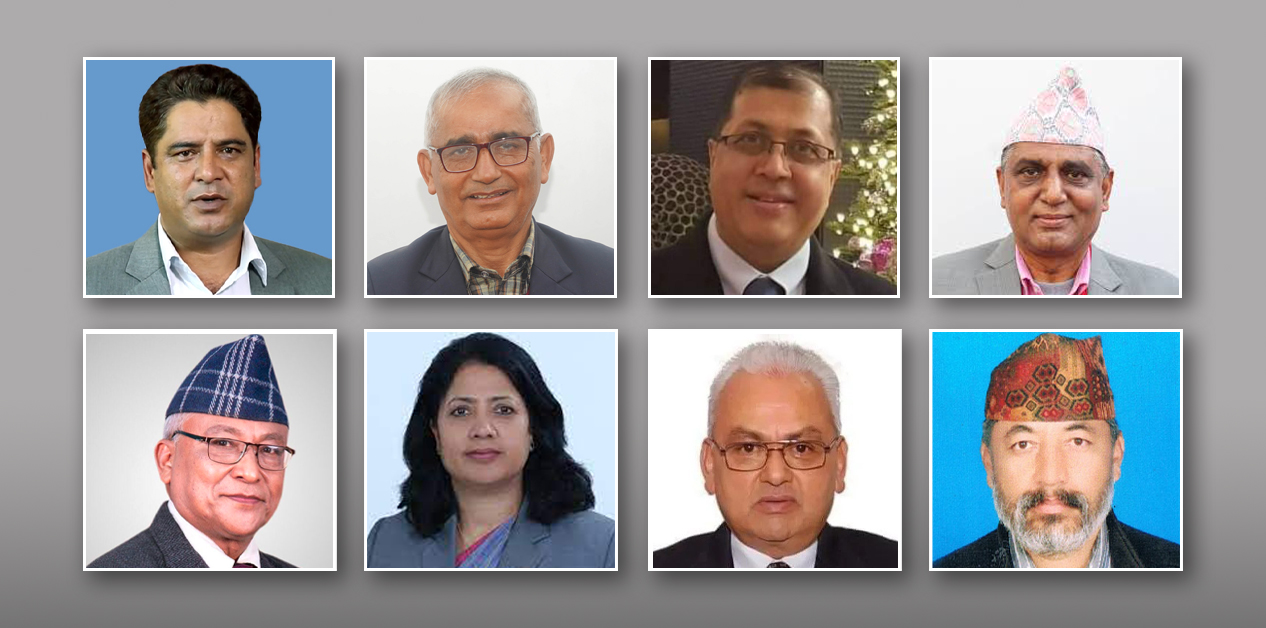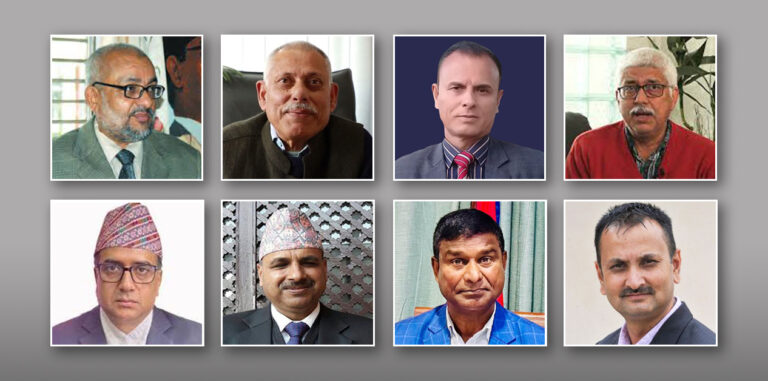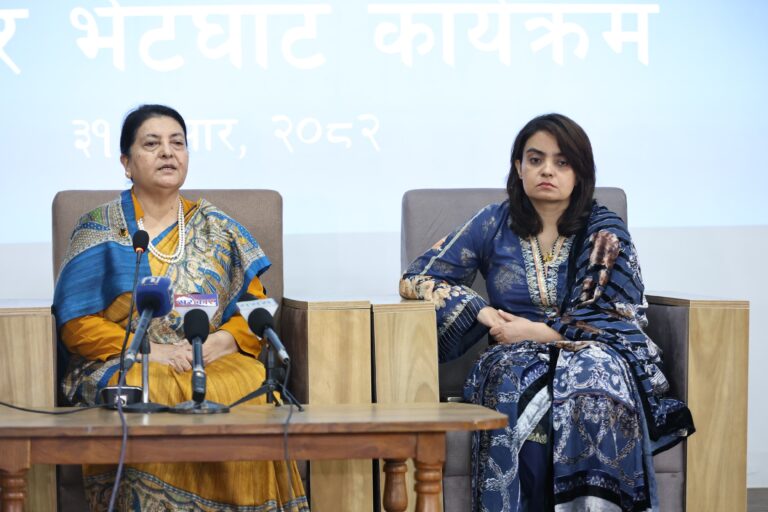
Within the Madan Bhandari Foundation, figures trusted by Oli and Bhandari consistently rise to rewarding posts with far-reaching access to government resources

KATHMANDU: The cadre who have ascended to lucrative governmental positions by leveraging the Madan Bhandari Foundation (MBF) as a conduit, thereby accessing political authority and government resources, constitute a significant population. Foundation leadership figures have secured key provincial, governmental, and pivotal CPN (UML) posts. The Communist Party of Nepal (Unified Marxist-Leninist), abbreviated as CPN (UML), is one of Nepal’s major political parties.
Individuals coalesced within the Madan Bhandari Foundation have garnered appointments to offices spanning President, Prime Minister, Speaker, National Assembly Chairperson, Minister, and Member of Parliament, extending even to roles from University Chancellor to Departmental Head. The preeminence of Foundation affiliates is conspicuously evident among all recipients of patronage from the CPN (UML).
The Foundation, established to immortalize the ideology of the CPN (UML)’s then-General Secretary Madan Bhandari and to perform social welfare work, has become a vehicle for the exploitation of governmental resources and for appointments to high political and administrative levels.
The current CPN (UML) Chairman KP Sharma Oli, who played a key role in establishing the Foundation, remains its unbroken patron. Oli used the Foundation as a medium to become the CPN (UML) Chairman and served as the country’s Prime Minister four times. “If the Madan Bhandari Foundation did not exist, KP Sharma Oli would not have become the party chairman and prime minister four times,” says Damodar Aryal, a former central member of the Madan Bhandari Foundation. Aryal was a central member and the then Bheri Zonal Incharge of the Foundation from around 2009 to 2021.
During the time the CPN (UML) was led by Manmohan Adhikari, Madan Bhandari, Madhav Nepal, and Jhalanath Khanal, Oli did not have significant influence in the party. He was first elected as the party chairman at the CPN (UML)’s Ninth General Convention held in 2014. Oli ran a debate on democratization within the party through the Foundation to reach the CPN (UML) leadership. The Foundation provided Oli with an important platform to establish himself in CPN (UML) politics. Initially, the plan for the Foundation’s establishment belonged to Oli himself.

Affiliated leaders of the Madan Bhandari Foundation: Damodar Bhandari, Guru Baral, Rajan Bhattarai, Anand Pokharel, Krishnagopal Shrestha, Bimala Paudel Rai, Mahendra Bahadur Pandey, and Chhabilal Bishwakarma.
Madan Bhandari’s wife and the Foundation’s president for the first three terms, Bidhya Devi Bhandari, served two terms as the country’s president. After completing her seven-year term as president, Bhandari has again become the foundation’s patron. Since then, using the Foundation’s platform, she has claimed the UML leadership again. On June 28, she announced her return to active politics from the Foundation’s platform at the National Assembly Hall.
The individuals who have benefited the most from the Foundation are CPN (UML) Chairman Oli and Bhandari themselves. Many others who gained their trust by working with them have received significant opportunities in governmental and CPN (UML) politics. After Oli became the CPN (UML) Chairman, individuals affiliated with the Foundation were given important responsibilities within the party organization as well. Devraj Ghimire, the Speaker of the dissolved House of Representatives, and Ganesh Prasad Timilsina, the former Chairman of the National Assembly, were also Executive Committee members of the Foundation. Somnath Adhikari ‘Pyasi,’ who was a member of the Foundation, has already served as the Chief Minister of Gandaki Province.
Hikmat Kumar Karki, who was once the General Secretary of the Foundation, is currently the Chief Minister of Koshi Province. Karki has become the Chief Minister of Koshi Province for the second time. Saroj Yadav, the Chief Minister of Madhes Province, was also an Executive Committee member of the Foundation. Before him, Dormani Paudel served as the Chief Minister of Bagmati Province. Having been a member of the Foundation, he is now the Coordinator of the Madan Bhandari Diamond Jubilee Management Committee.
Madan Bhandari’s wife and the Foundation’s president for the first three terms, Bidhya Devi Bhandari, served two terms as the country’s president. After completing her seven-year term as president, Bhandari has again become the foundation’s patron.
Sherdhan Rai, the former Chief Minister of Koshi Province, who was considered a confidant of former President Bidhya Bhandari, was also an Executive Committee member of the Foundation. At Bhandari’s insistence, he had also served once as the Minister of Information and Communication before becoming Chief Minister.
It has become common for individuals affiliated with the Foundation to gain access to resources and power within the CPN (UML) party. Many Foundation members had already achieved minister, member of parliament, and important political appointment posts when the CPN (UML) was leading the government.
Ganesh Man Gurung, the former Chairman of the University Grants Commission, was also a member of the Foundation. Later, he also became the Chancellor of Gandaki University. Similarly, he served one term as the Member Secretary of the University Grants Commission.
Premsagar Luintel, who has been a member since the foundation’s inception, became the Director of Research at the Registrar’s Office of Tribhuvan University, while Chiranjeevi Sharma became the Vice Chancellor of Pokhara University.
The late Chaitanya Sharma, who became a member of the Foundation around 2003, not only became the Chairman of the Tribhuvan University Service Commission but also the Vice Chairman of the then-Higher Secondary Education Council. The Vice Chairman is the Executive Head of the Council, which is chaired by a Minister.
Nanda Bahadur Singh, who was an Executive Committee member of the Foundation, became the Vice Chancellor of Mid-Western University. Similarly, Ramesh Silwal, the operator of GoldenGate College and a member of the Foundation, became the Member Secretary of the National Sports Council.

Affiliated leaders of the Madan Bhandari Foundation: Chiranjeevi Sharma, Sushil Pyakurel, Nanda Bahadur Singh, Kundal Aryal, Tika Prasad Dhakal, Bhesraj Adhikari, Jibachha Sah, and Mahendra Bisht.
Likewise, Jibachha Sah, affiliated with the Foundation, became a member of the President Chure-Terai Madhes Conservation Development Committee. Nirmal Bishwakarma, the elder son-in-law of CPN (UML) Secretary Chhabilal Bishwakarma and a member of the Foundation, became the Ambassador to South Africa. Nirmal, an expert in forest science, was made ambassador after his father-in-law, Chhabilal, pleaded with Bidhya Bhandari when she was president and the then-prime minister, KP Oli.
The objective of the Foundation mentions ‘working for the benefit of society and of people.’ To be affiliated with the Foundation, one must accept the multi-party democracy put forward by Bhandari. “This is the organization of those who follow Madan Bhandari’s ideology. One faction within the CPN (UML) worked against multi-party democracy, so we opened the Foundation, saying that it must be replaced,” says Mahendra Bahadur Pandey, former president of the Foundation. “At that time, the party leadership could not drive it correctly. Multi-party democracy remained only a slogan. The Foundation was opened because an organization was needed to establish it among the people.”
According to Pandey, the Madan Bhandari Foundation exists as a volunteer organization. However, there is no shortage of people who use it to achieve important positions in the CPN (UML) party and the government. Pandey adds, “Everyone on its Executive Committee is supposed to work voluntarily.”
Although the objective was to advance Madan Bhandari’s ideology in the social and academic sectors, the Foundation’s single objective at one time was to make KP Sharma Oli the CPN (UML) Chairman. All preparations for this were made by the Foundation itself. Damodar Aryal, a former central member of the Foundation, says, “Initially, most of those defeated in the UML’s internal competition were managed by bringing them into the Foundation, and the Foundation’s sole objective was to make KP Sharma Oli the CPN (UML) Chairman.”
The Foundation, which was initially developed as a parallel organization to the CPN (UML), has Executive Committees in all districts. This helped extend Oli’s separate political line to the grassroots level. After Madan Bhandari’s death, Madhav Kumar Nepal, who was in the main leadership of the party, limited Oli to a minority in the CPN (UML). When Madhav Nepal dominated the party, the Foundation became an alternative platform for Oli and Bhandari.
Although the objective was to advance Madan Bhandari’s ideology in the social and academic sectors, the Foundation’s single objective at one time was to make KP Sharma Oli the CPN (UML) Chairman.
Damodar Aryal, an initial Central Member of the Foundation, separated from the CPN (UML) and joined the CPN (Unified Socialist). That party recently merged with the Nepali Communist Party. Aryal, however, left Madhav Nepal and joined the CPN Leftist Center led by Ghanshyam Bhusal.
Similarly, Mohan Singh Rathour, who was once a central member of the foundation, was a Nepali Congress candidate for Kailali Constituency Number 2 in the 2017 election. Apart from these two, others affiliated with the Foundation are still in the CPN (UML).
The depth of loyalty was substantial: at one time, the majority of CPN (UML) leaders and workers who served as Central Members of the Madan Bhandari Foundation maintained sustained involvement with the Oli-Bhandari faction. However, the Foundation’s membership has since fractured in the wake of the recent, widening divergence between Oli and Bhandari. Presently, the Foundation is predominantly controlled by Bhandari’s confidantes. Given this schism, CPN (UML) Chairman Oli is currently displeased with the Foundation. He recently stated that since the Foundation was acting against the party leadership, its activities warranted immediate monitoring and scrutiny.
Not only in governmental positions but also in CPN (UML)’s internal politics, those who became active in the Foundation after Oli became Chairman have received important responsibilities in the government and the party.
Nirmal Bishwakarma, the elder son-in-law of CPN (UML) Secretary Chhabilal Bishwakarma and a member of the Foundation, became the Ambassador to South Africa.
KP Sharma Oli entrusted Guru Baral, who held sway in the Foundation for a long time, with the responsibility of party vice chairman after the death of former speaker and CPN (UML) vice chairman Subas Nembang. The interesting thing is that Baral, who is also a former Member of Parliament, is also holding sway by establishing another organization named the Madan Bhandari Memorial Institute in Urlabari, Morang. Baral is also the president of that organization.
The CPN (UML) Secretary Chhabilal Bishwakarma, who is active in the Oli faction, was also a member of the Madan Bhandari Foundation. Bishwakarma is also one of the Dalit figures who continuously receives positions of profit. Bishwakarma, who was a member of the National Sports Council during the CPN (UML)’s nine-month government in the fiscal year 1994/95, became the Vice Chairman of the then-Underprivileged, Oppressed, and Dalit Class Upliftment Development Committee in the fiscal year 1997/98. Nominated as a member of the Interim Legislature-Parliament in the fiscal year 2006, he became the Minister of Agriculture and Cooperatives in the then-all-party government led by Girija Prasad Koirala.
The CPN (UML) nominated him as a proportional representative member of the Constituent Assembly in 2008, and he was elected as a Member of Parliament two times from Rupandehi 1 in the 2017 and 2022 elections. Chhabilal is the sole figure among Dalits to receive such a high post in the UML’s organization, Parliament, and Government.
Bhanu Bhakta Dhakal, a former Central Member of the Foundation, is also among those who received positions of profit. While Oli was Prime Minister, he served as the Minister of Law, Justice, and Parliamentary Affairs; Health and Population; and Culture, Tourism, and Civil Aviation. In the CPN (UML), he is currently the Head of the Front Organization of the party. The CPN (UML) Standing Committee member Rajan Bhattarai was the Foreign Affairs Advisor when Oli was Prime Minister in 2018. He was also the general secretary of the foundation for one term.

Madan Bhandari Foundation Chairperson Usha Kiran Bhandari alongside mother and former President Bidya Devi Bhandari.
Family’s Control
The Madan Bhandari Study and Research Center, which began in a small room in Maligaun, Kathmandu, has now become a powerful center influencing CPN (UML)’s politics as the Foundation. This organization, which Oli and Bhandari developed from the beginning as a platform to exercise power over state resources, has become a vehicle for many CPN (UML) leaders to attain positions of profit.
In the 26-year lifespan of the organization, which started under the leadership of Achyut Prasad Neupane in 1999, powerful CPN (UML) leaders and family members have dominated. Initially led by mother Bidhya Devi Bhandari as president, the foundation is now chaired by the eldest daughter, Usha Kiran Bhandari. Similarly, Madan Bhandari’s niece, Mina Bhandari, is the treasurer. Madan Bhandari’s brothers, Kailash Bhandari and Prem Bhandari, are also Executive Committee members of the Foundation.
Chintamani Bhattarai, who served as the Foundation’s treasurer for an extended tenure, is Madan Bhandari’s nephew. Addressing the perceived family control, Degendra Pandey, a Foundation member and Bidhya Bhandari’s brother, asserted, “Although it is outwardly viewed as an organization belonging to family members, this is not exclusively the family organization of Madan Bhandari. This is not solely Bidhya’s or Usha’s organization. It belongs to all of us, including them.”